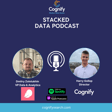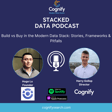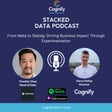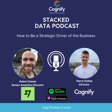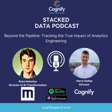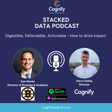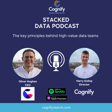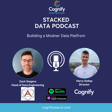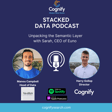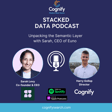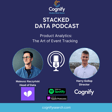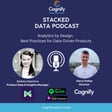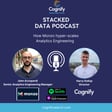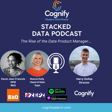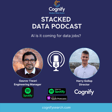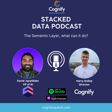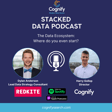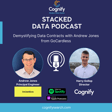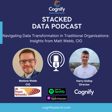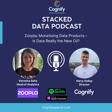
016 Omni - The Next Gen of BI
Self-serve BI was one of the trailblazers for the modern data stack. The ability to allow business stakeholders to not only see reports but also start exploring their own data was truly a seismic shift in data.
What is next for BI?
Join me in the latest episode of the Stacked Data podcast as I sit down with Collin Zima, the Co-founder and CEO of Omni, for an insightful discussion on the future of Business Intelligence.
🚀 About Colin:
Collin Zima's journey from an early Google employee to leading data teams at Hoteltonight before eventually becoming the Chief Analytics Officer and VP of Product at Looker gives him a unique perspective on the evolution of BI. Now, as the driving force behind Omni, he's shaping the next generation of BI solutions.
🔍 Dive into Next GenBI with Us:
In this episode, we explore:
The primary purpose and value of BI
Challenges facing the BI sector and strategies to overcome them
Omni's innovative approach and key focus points
The importance of a customer-centric approach in building BI solutions
Future trends and advancements shaping the BI landscape
Tune in as Collin shares his experiences, insights, and advice for organisations navigating the complex world of BI in today's competitive landscape.
Colin's message was clear to me, he and Omni doesn't seek to rewrite the BI script but to refine it!
